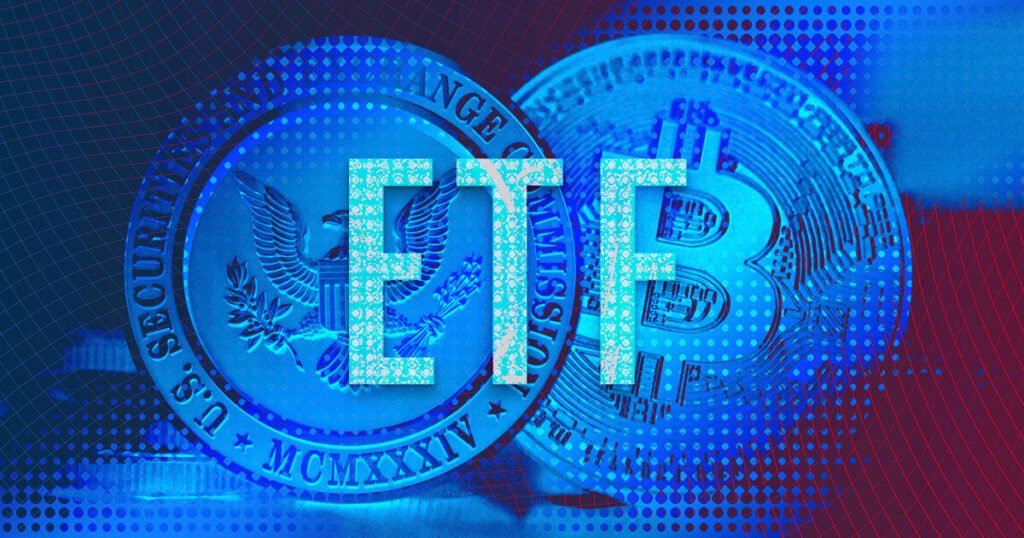BlackRock has raised concerns about the U.S. Securities and Exchange Commission’s inclination toward the 1940 Act, overseeing futures ETFs, contending its lack of relevance to both crypto-spot and crypto-futures ETFs.
BlackRock contends that the U.S. Securities and Exchange Commission lacks a valid rationale to differentiate between spot-crypto and futures exchange-traded fund applications.
The formal approval of BlackRock’s proposal for a spot-Ether (ETH) ETF, named the “iShares Ethereum Trust,” transpired on November 9. Nasdaq submitted the 19b-4 application form to the SEC on behalf of the firm.
In its application, BlackRock questions the SEC’s handling of spot crypto ETFs, asserting that the agency’s continual denial of these applications is based on erroneous regulatory distinctions between futures and spot ETFs.
“Considering that the Commission has sanctioned ETFs providing exposure to ETH futures, which are, in turn, priced based on the underlying spot ETH market, the Sponsor contends that the Commission must also grant approval to ETPs offering exposure to spot ETH.”
Although the SEC has not yet approved a single spot-crypto ETF application, it has greenlit numerous crypto futures ETFs.
BlackRock Challenges SEC’s Regulatory Distinctions Between Crypto Futures and Spot ETFs

The securities regulator attributes this to the supposedly superior regulation and consumer protections of ETFs under the 1940 Act, in contrast to the 1933 Act covering spot-crypto ETFs.
Furthermore, the SEC appears to favor regulation and surveillance-sharing agreements with the Chicago Mercantile Exchange’s (CME) digital asset futures market.
BlackRock argues, however, that the SEC’s preference for the 1940 Act is irrelevant in this context, as it imposes “certain restrictions on ETFs and ETF sponsors,” not on the underlying assets of the ETFs.
Importantly, none of these restrictions address an ETF’s underlying assets, whether ETH futures or spot ETH, or the markets from which such assets’ pricing is derived, whether the CME ETH futures market or spot ETH markets.
As a result, the Sponsor contends that the distinction between the registration of ETH futures ETFs under the 1940 Act and the registration of spot ETH ETPs under the 1933 Act is one without a difference in the context of ETH-based ETP proposals.
BlackRock Advocates for Inclusion of Crypto Futures in ETFs

BlackRock outlines that since the SEC has approved crypto futures ETFs via the CME, it has “unequivocally determined that CME surveillance can detect spot-market fraud that would impact spot ETPs.”
In the firm’s view, this leaves the SEC with no justifiable grounds to reject the application under its current line of reasoning.
Crypto and ETF analysts generally believe that the first SEC approval of a spot crypto ETF, particularly a Bitcoin-related one, is imminent.
Bloomberg ETF analysts James Seyffart and Eric Balchunas anticipate a 90% likelihood of approval before January 10 next year.
Read More:
Optimism Presents We The Art, A One-of-a-Kind Creator Contest!
UBS Group to Enable High-Net-Worth Clients to Trade Crypto Futures ETFs in Hong Kong

